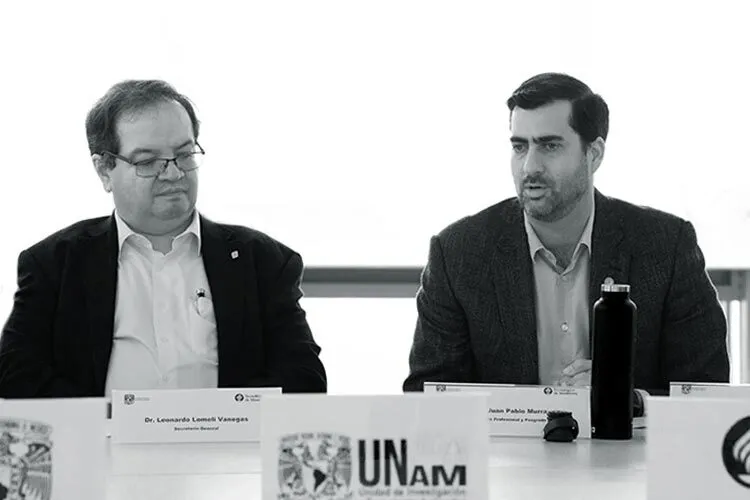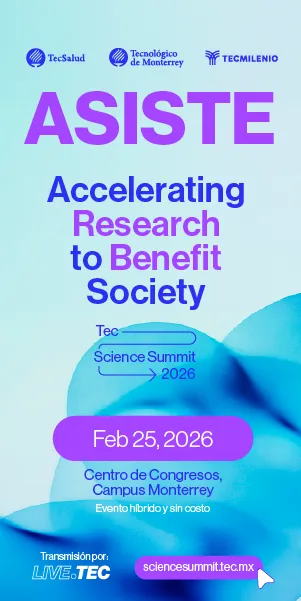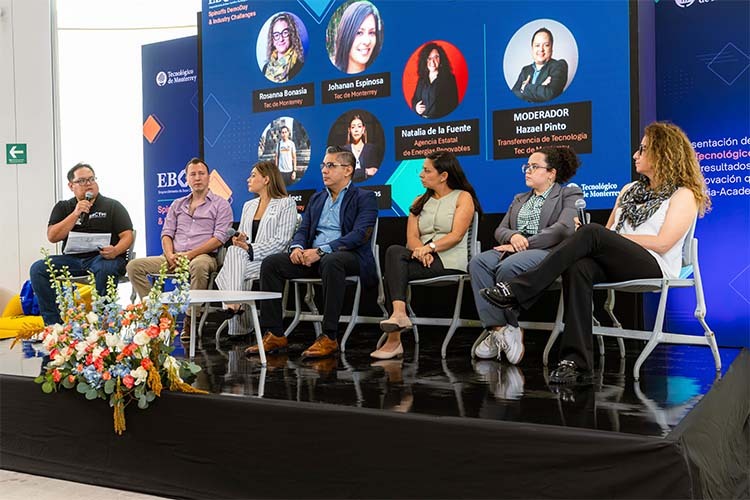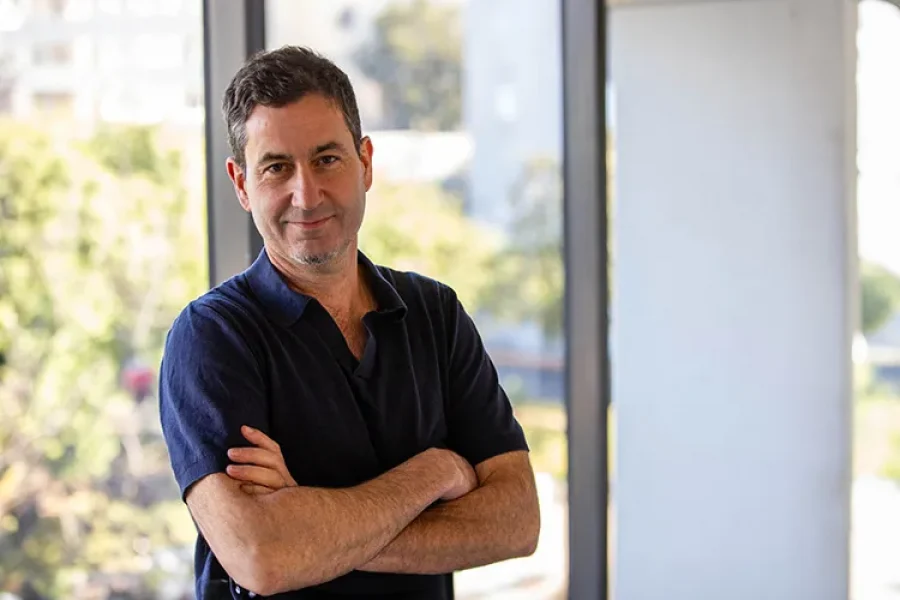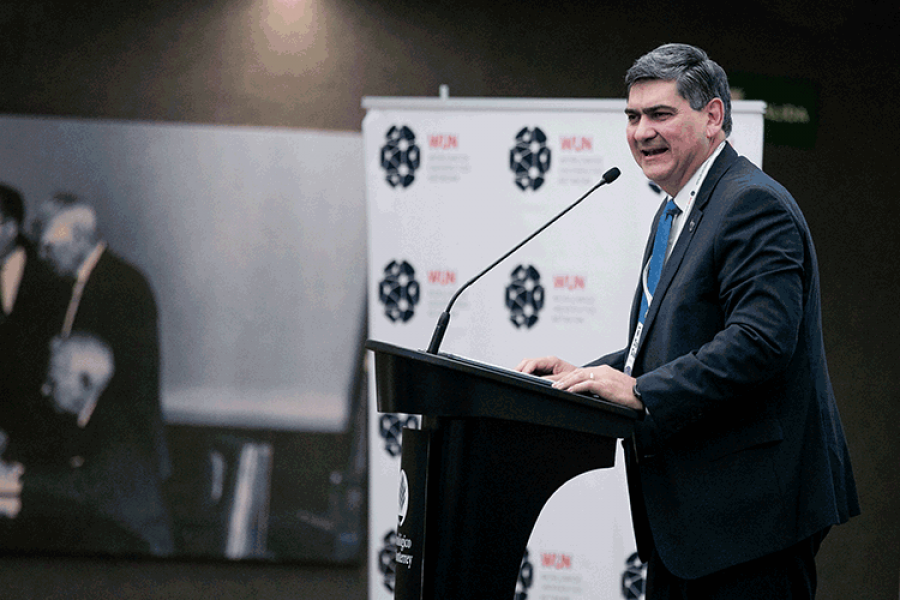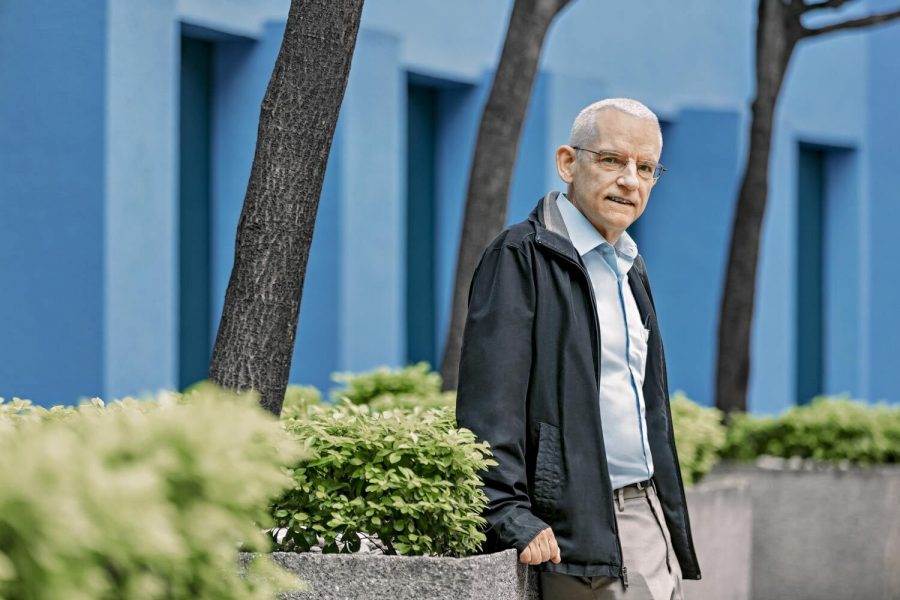At the second edition of EBCTec: Spin-Offs DemoDay & Industry Challenges, Tecnológico de Monterrey showcased its latest science and technology-based companies. Among them were ventures focused on low-cost electric vehicles, chemical-free water purification systems, and nanoparticles for targeted drug delivery, among others.
The event, held at the Expedition FEMSA building within Monterrey’s Innovation District, welcomed around 25 new ventures into the Tec’s innovation ecosystem. These startups are the result of collaborative efforts between Tec researchers and entrepreneurs or investors.
“We have a large number of highly skilled researchers. It’s crucial that we commit to bringing science to the marketplace and to solving problems both in Mexico and around the world,” said Mario Adrián Flores, Vice President of the Monterrey Region of the Tec, during the opening remarks.
Researchers Unveil New Tec Spin-Offs
At the Spin-Offs DemoDay, organized by the Tec’s Technology Transfer Office, scientist-entrepreneurs introduced 11 new science and technology-based companies that are joining the institution’s entrepreneurial ecosystem.
Among the spin-offs presented was:
Primo Electric Vehicle, Mexico’s First Electric Vehicle Company
In response to traffic congestion and environmental health concerns in Monterrey, Primo Electric Vehicle has emerged as a local startup developing affordable electric vehicles. Their design is tailored specifically for the urban and industrial landscape of the region, utilizing local manufacturing to help keep costs down.
With target prices ranging from 300,000 to 350,000 pesos, Primo EV aims to broaden access to electric mobility with applications ranging from cargo transport to passenger services. As Jorge Lozoya-Santos, a research professor at the School of Engineering and Sciences, explained, Primo is working to establish itself “as the first Mexican company producing low-cost electric vehicles that make a high-impact contribution to society.”
The company plans to manufacture between 250 and 500 vehicles in its first year, collaborating with pilot customers in airports, industrial zones, and tourist towns known as “pueblos mágicos.” Its long-term vision includes electrifying all light-duty cargo systems under one ton and expanding into South America within the next five to ten years.
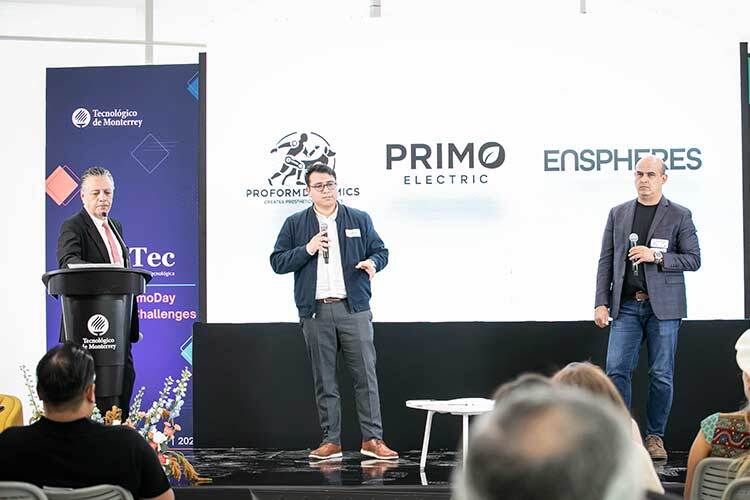
Bioclean-AlgaeWater: Turning Waste Into Treated Water and Fertilizer Biomass
Tequila production in Mexico generates between 4.5 and 7.8 million cubic meters of vinasse each year—a highly polluting liquid waste, 80% of which is discharged into water bodies and soil without proper treatment. Meanwhile, the tortilla industry produces between 1.5 and 2 million liters of nejayote daily, an alkaline byproduct that contains hard-to-degrade compounds.
To tackle this issue, the founders of Bioclean-AlgaeWater have developed an alternative solution that Danay Carrillo, a Tec researcher specializing in agro-industrial waste, describes as “100% Mexican.” “We’re trying to shift from a linear economy to a circular one, by properly managing these residues,” said Carrillo. The result is treated water and a nutrient-rich biomass that can be used as fertilizer.
Their technology is designed to integrate with existing treatment systems and is aimed at companies without access to conventional wastewater plants. The startup is currently in the technology validation phase and is seeking to run pilot tests with the tequila industry to fine-tune its systems and forge key partnerships in the agro-industrial sector.
Naddon: Biocompatible, Biodegradable, and Targeted Medications
According to the World Health Organization (WHO), chronic degenerative diseases such as diabetes, cancer, and cardiovascular disorders account for roughly 35 million deaths each year. As a science-driven startup, Naddon aims to confront this global challenge through a cutting-edge nanotechnology platform.
Hugo Alves introduced the technology, which centers on encapsulating medications within smart nanoparticles that are both biocompatible and biodegradable. These particles activate only when they detect signs of inflammation or specific cellular receptors, releasing the medication in a precise and sustained manner. This approach minimizes side effects, avoids toxic residues, and improves patients’ quality of life.
With proven effectiveness in preclinical studies, the company plans to launch clinical trials in partnership with Mexican medical institutions. The potential market is vast: the diabetes drug segment alone is valued at over $70 billion, with an expected growth rate of 5.2%. Naddon’s targeted delivery system could also help reduce the global costs of poor treatment adherence, estimated at more than $500 billion, by optimizing dosage and improving outcomes.
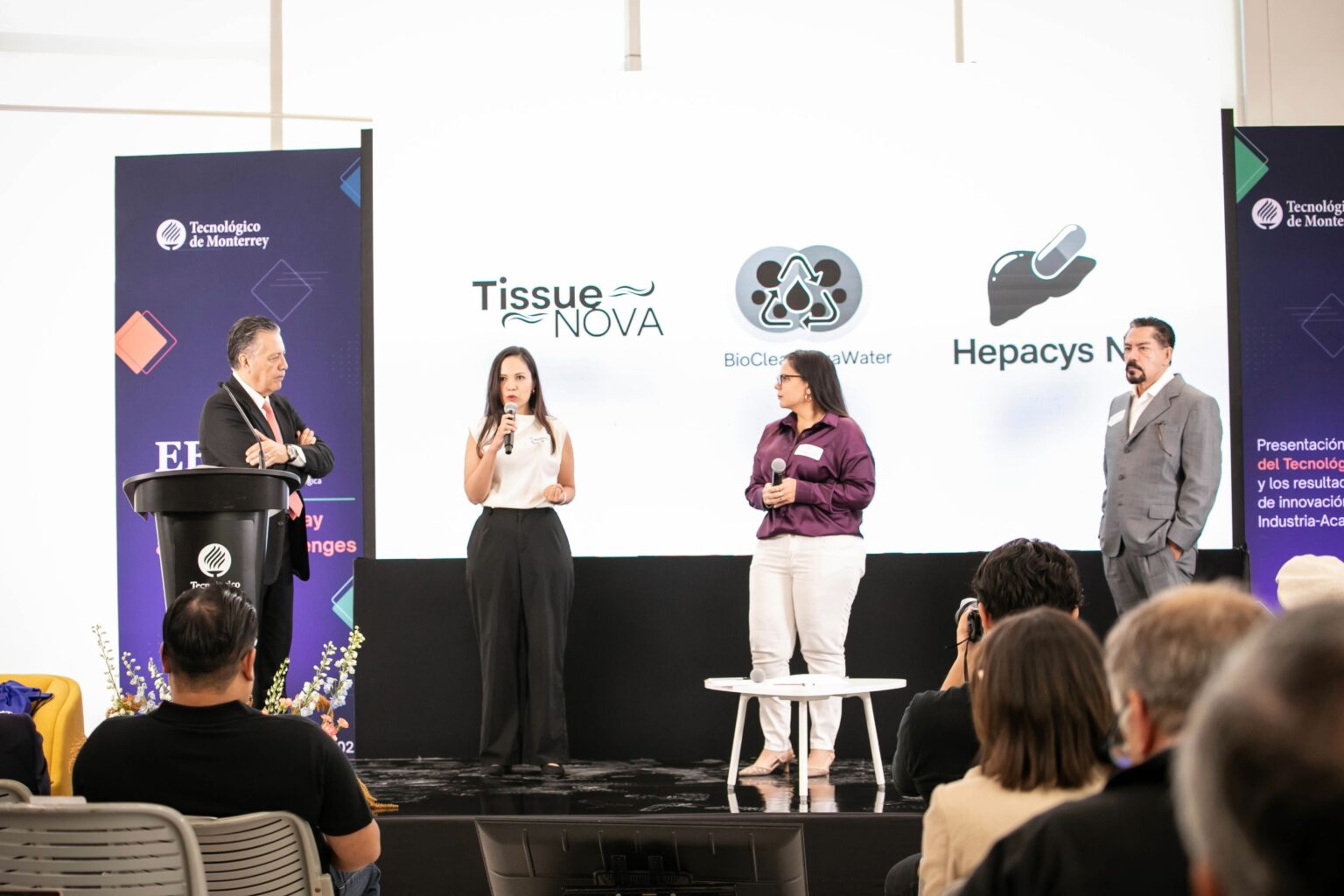
Progress Report on Previously Launched Spin-Offs
In addition to the unveiling of new ventures, previously launched spin-offs also shared updates on their progress and achievements in the health and industrial sectors. They also discussed their current investment needs to support ongoing growth, technological development, and market expansion.
Synthetic Ocular Restoration: The Power of a Donated Cornea
This venture has developed the ability to produce biocompatible, functional, and transplantable tissue through tissue engineering, aimed at restoring vision. From a single donated cornea, the research team has managed to create up to six implants that retain the original’s properties, are biocompatible, and significantly more cost-effective.
Led by Jorge Valdez, the team has gathered solid evidence during the preclinical laboratory phase. They are currently conducting microscopic analysis and validation using human tissue, with plans to begin the first clinical trials involving patients.
The company is currently raising a seed investment round of $2 to $3 million. This funding will support continued clinical validation and the development of biomaterials.
Forma Foods: Commercial Growth to Replace Animal-Based Meat
This spin-off aims to revolutionize the food industry through a bioengineering approach that designs plant-based meat using chaotic 3D printing techniques. Over the past year, the team has developed a product that delivers a sensory experience comparable to that of animal-derived meat, even earning a spot in tasting menus at Michelin-starred kitchens.
Led by Mario Álvarez and Grissel Trujillo, the team combines additive manufacturing with plant-based formulations to mimic the structure of muscle fibers, as well as fat and connective tissues.
Forma Foods is currently focused on optimizing its technology, validating its product, and scaling commercially. To support this growth, the company is seeking a $2 million investment round.
Arquitectura de Horizontes: Hybrid Intelligence for Complex Challenges
One year after its launch, Arquitectura de Horizontes has established a solid foothold in the market and is now poised for its next phase of development. Founded by Edgar Barroso, a professor and researcher at the Tec’s School of Government and Public Transformation, the startup fosters collaboration between humans and artificial intelligence.
Barroso described how their consultancy-first model, followed by licensing their software as a service (SaaS), has proven both effective and scalable. The company is now preparing to shift toward a broader distribution model that will make its hybrid intelligence architecture directly accessible to individual users. To reach that milestone, they are seeking investment to support growth and form strategic international partnerships, positioning themselves within a global AI market projected to exceed $20.48 billion by 2032.
Sensors for Crops and Gamification
Several other newly launched spin-offs were also introduced at the event. Among them was ProformDynamic, which offers anatomically precise and biocompatible solutions for manufacturing prosthetics and bone implants for animals.
Hummsky Agrosolutions presented a modular system of wireless sensors designed for crop monitoring, transmitting real-time data from the field. Fred! showcased a platform that transforms traditional university courses into gamified learning experiences. Enspheres unveiled a genetic and cell therapy platform that uses nanocapsules to deliver genetic material. Meanwhile, Alia introduced an AI-powered tool that analyzes medical imaging studies to predict the risk of developing certain diseases.
Also featured was Genesirt Bio, which is developing a gene therapy capable of reversing up to 25% of pulmonary fibrosis using a human gene that regulates inflammation and oxidative stress. Tissue Nova is working on a 3D tissue model that replicates the structure of adipose tissue and helps assess potential drug candidates. Hepacys N, a biotech spin-off, is developing treatments for chronic liver diseases using already-approved molecules.
Among the spin-offs that showcased their progress were also Jaseda, AIOT4ALL, 3J&M (WheelTech), Maedditiva, Sytosol, Jasdan Nutrition, Envintecs, and MikMed, among others.
Interested in this story? Want to publish it? Contact our content editor to learn more: marianaleonm@tec.mx


